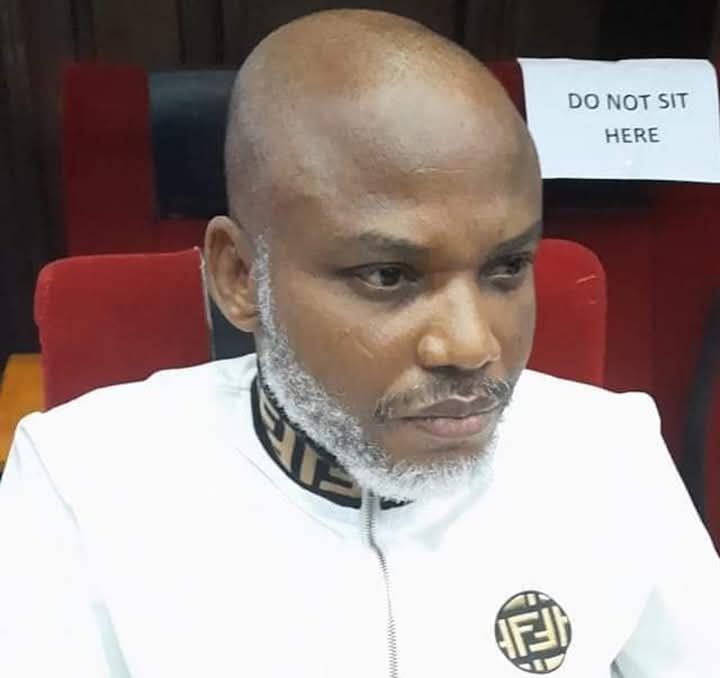
Nnamdi Kanu’s legal team, led by Barrister Aloy Ejimakor, has raised serious allegations of an “unholy alliance” between the Nigerian government prosecution and the judiciary in the ongoing terrorism and treasonable felony trial of the Indigenous People of Biafra (IPOB) leader. According to Ejimakor, this alleged collusion has undermined the fairness and impartiality of the court proceedings.
The legal team made this known during a world press conference in Abuja on Thursday.
They said that the prosecution relies exclusively on undue technicalities, inspired leaks and undue influence on court officials in securing undeserved court orders in favour of the Nigerian government.
According to the IPOB leader’s legal team, throughout the period of what they described as “mock trial” before Justice Binta Nyako of the Federal High Court and the Court of Appeal, no decision of the courts touched on the merit of the cases.
The legal team said, “There is unholy alliance between the prosecution and the judiciary such that the Court of Appeal refused to hear appeals on the grounds that the panel requires time to study the appeals, even when the panel would have 3 months to study, deliberate and determine the fate of such appeals only for the prosecution team to get hints from the “appropriate quarters” to file Motion on Notice challenging the entirety of an appeal and despite the robust submissions against the motion, the motion was granted.
“Of course, no judge overrules himself and the legal team of Nnamdi Kanu was thereby held to have waived their right to complain against the incompetence of the said motion on notice.
“On the run of the foregoing, it is our view that Mazi Nnamdi Kanu is undergoing persecution and state sanctioned extrajudicial detention and not trial.
“Persecution is a terrible approach to the prosecution of cases. From the unending adjournments, the refusal to prosecute the case before any other judge other than Justice Binta Nyako, the compromises centred on ensuring that Mazi Nnamdi Kanu is never allowed access to his lawyers for the preparation of his defence, it becomes irresistible a conclusion that what Onyendu Nnamdi Kanu is facing is persecution from the Federal Government of Nigeria and not normal prosecution permissible under criminal justice administration.”
The legal team further said that in Abacha VS. State (2002) LPELR-16(SC), it was admonished: “All power to settle issues between parties is vested in courts and court must be vigilant that genuine issues and controversies are settled so that no accused person will be oppressed either directly or indirectly through act of prosecution; if not we shall have persecution in place of prosecution.
“It is for this reason that an accused person, despite the power to file indictment on an information, should not be indicted to face trial that from the outset it was clear he should not face.”
The legal team added, “We expect that normal prosecution commences before another judge of the Federal High Court who would be even in the hearing of the charges.”


